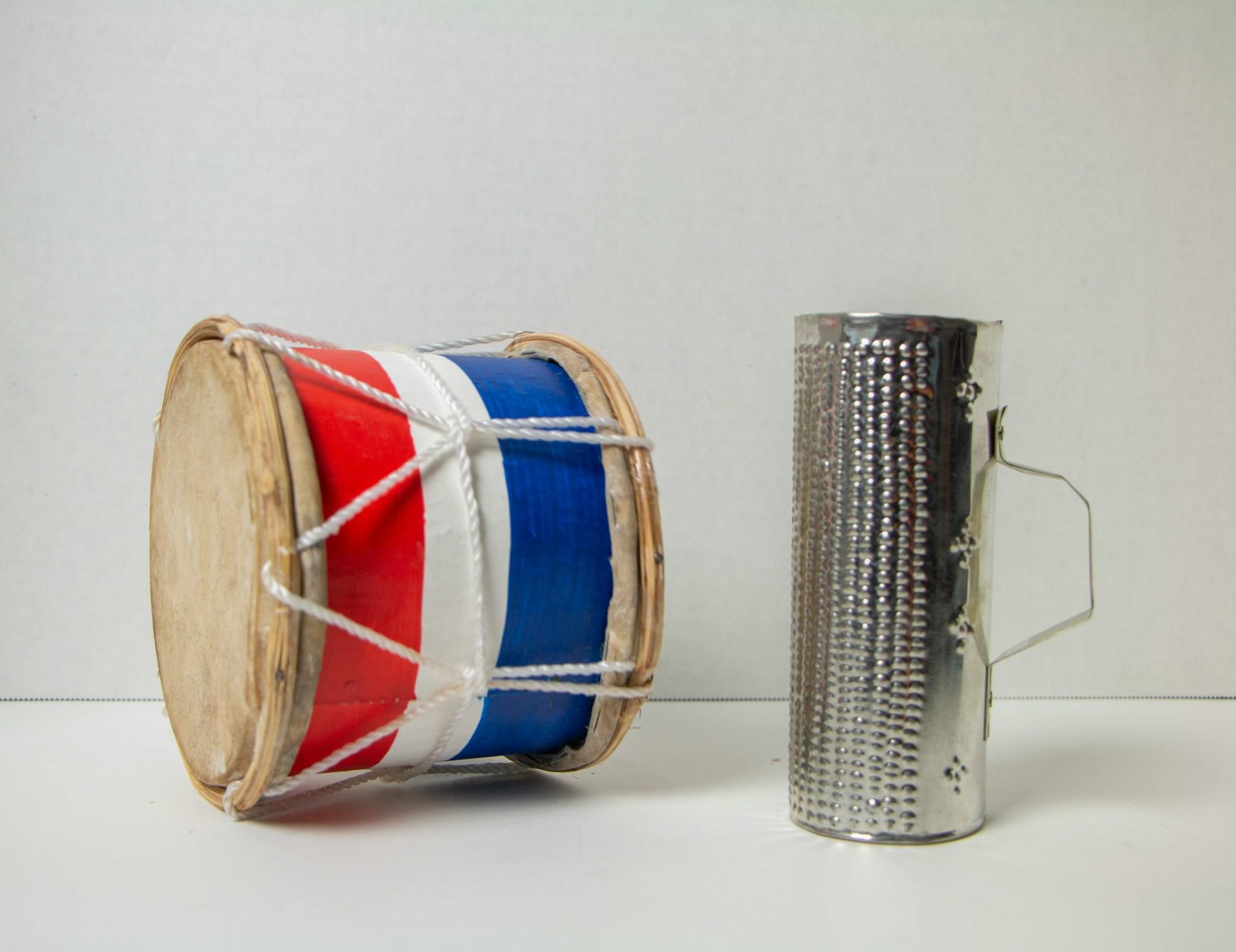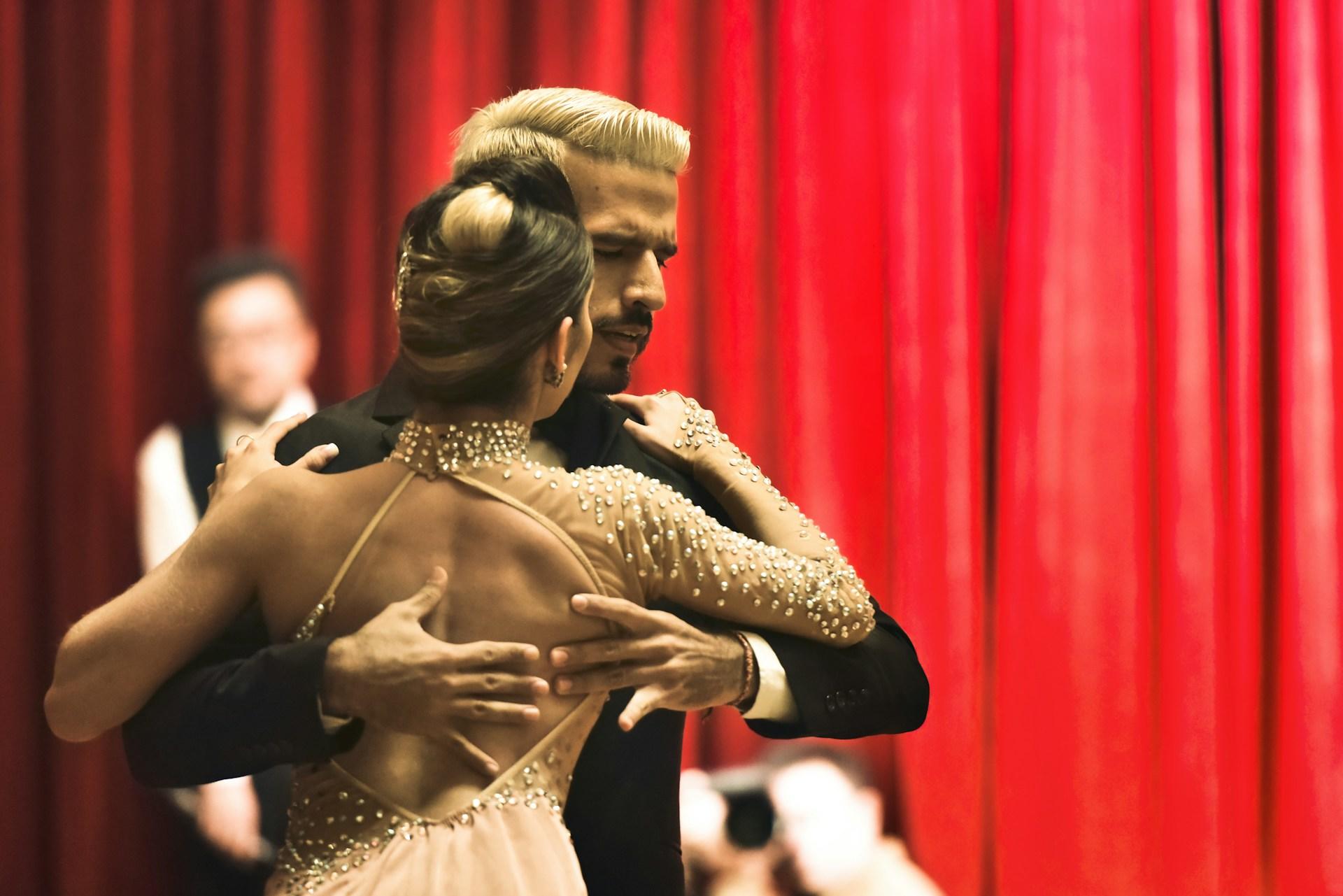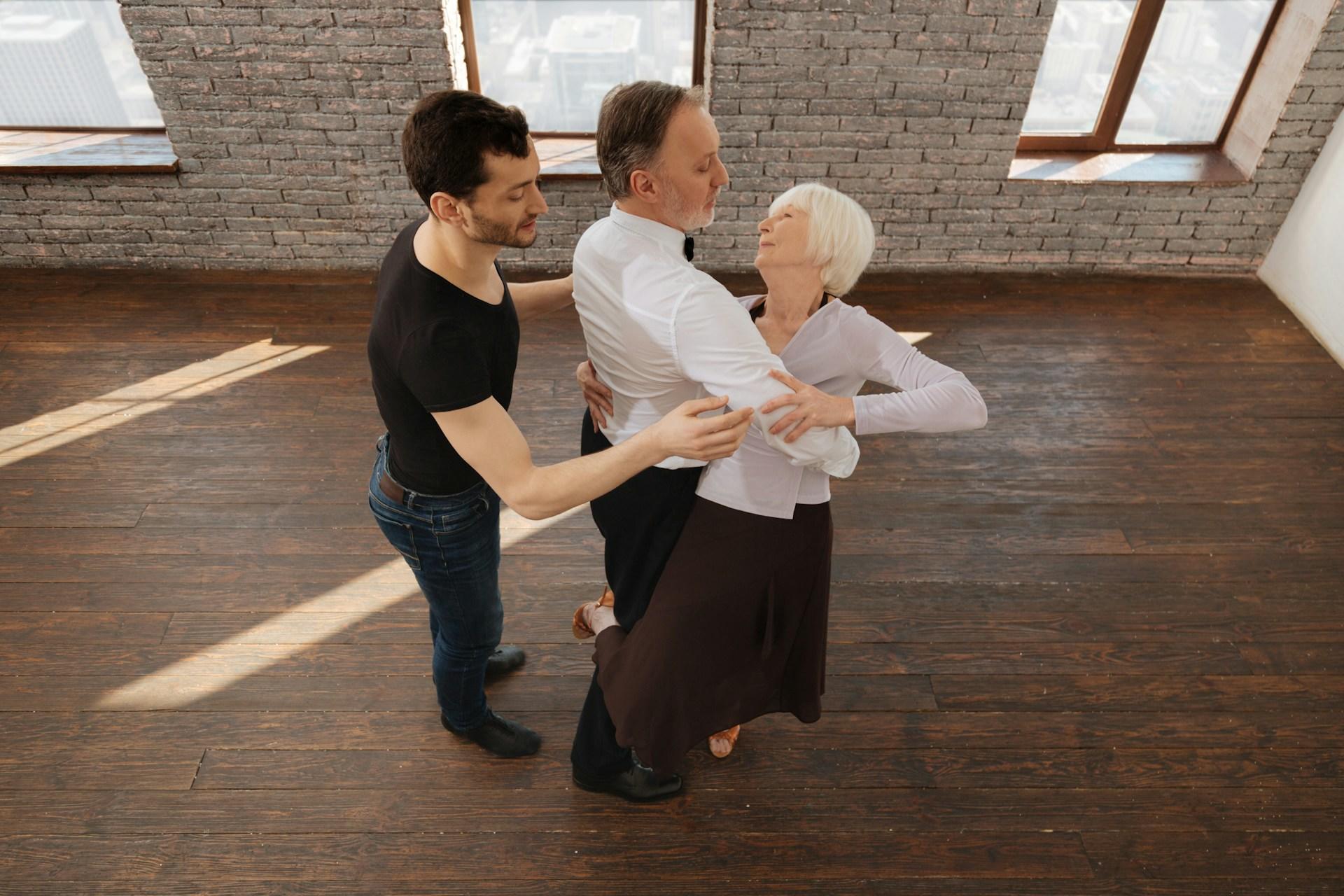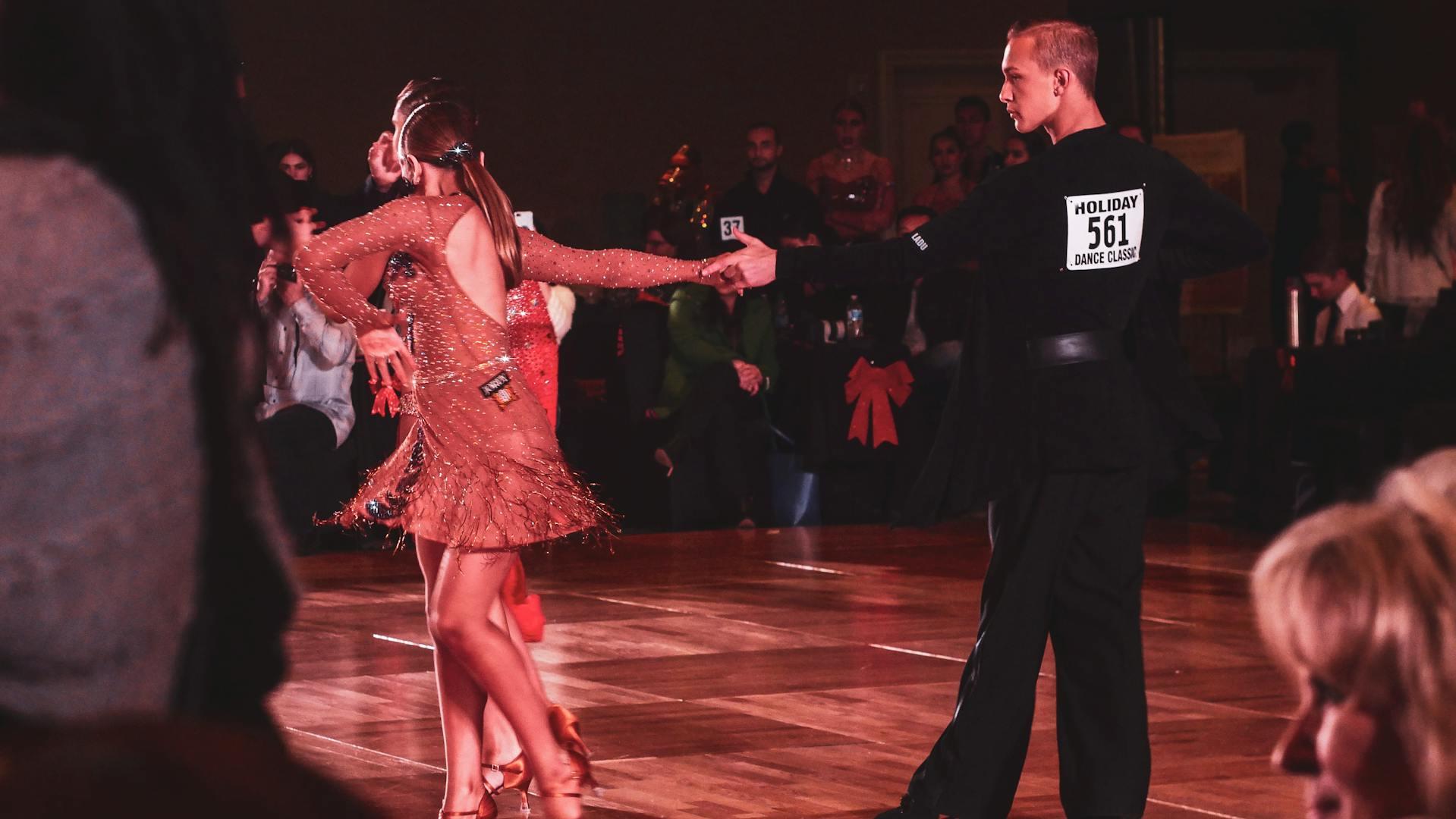Dance like there's nobody watching, Love like you'll never be hurt. Sing like there's nobody listening, And live like it's heaven on earth.
Mark Twain
Dancing brings people together in a way that words often can’t. Whether you’re gliding across the floor in a waltz or shimmying to the beat of a cha-cha, each partner dance has its own story and style. Unquestionably, each dance provides a different way to express yourself and connect with others, celebrating different traditions and emotions.
This article will explore 10 different partner dancing styles, their origins, as well as how to do each dance!
| Partner Dance | Origin |
|---|---|
| Salsa | Cuba |
| Bachata | Dominican Republic |
| Rumba | Cuba |
| Kizomba | Angola |
| Tango | Argentina |
| Merengue | Dominican Republic |
| Zouk | Antilles |
| Waltz | Austria |
| Cha-Cha | Cuba |
| Foxtrot | United States |
Discover now how you can learn to dance as a couple with us!

Salsa: The Most Popular Style of Dancing
Want to move like a Latino?
Salsa is arguably the most sensual dance for couples and it’s also one of the most popular styles. It’s quite easy to find salsa lessons up and down the country and there are also plenty of private tutors offering salsa tutorials.
There are also some free salsa lessons that you can attend. However, be careful! If you decide to go along with your partner, you won’t spend the whole session dancing with them. During a typical salsa lesson, you’ll be expected to change partner from time to time.
Salsa originated in Cuba. While the word “salsa” means “sauce” in Spanish, it also means “sensual” in Cuban Spanish. Someone who dances salsa is known as a “salsero” or a salsera”.
Learn all the Salsa basics with Daniel Rosas in this YouTube video!
Dancing Bachata
During a Salsa evening, it’s quite common to find others dancing Bachata. This style of dancing originated in the Dominican Republic and was often looked down upon by the upper classes. Usually, it was the poorer classes who danced Bachata.

However, bachata became more and more popular in the Dominican Republic. Nowadays, you can find it being taught in salsa lessons. Bachata includes taking alternating steps forwards and backwards. The music is a blend of Latin American influences applied to a Dominican style.
Bachata is often considered to be more sensual than salsa. In fact, the dancers are often closer to one another and there are a lot of hip movements. It’s a great way to spend a romantic evening with your partner.
Dancing the Rumba in Cuba
Now we’re heading back to Cuba to the home of rumba. Often called a “dance of love”, rumba is a slow and sensual dance. In fact, the rumba involves a lot of flirting with your partner. It was inspired by Cuban dances such as the habanera and the guajira.
The name comes from the word rumbiar, which means “dance” in colloquial Cuban. The song Guantanamera will give you a taste of what to expect in terms of music. To learn the rumba, you can always take your partner along to a dance school that specializes in Latin dancing. Here's an introduction to Rumba on YouTube!
You can learn the basics and start practicing in a very short amount of time. So why not give Rumba a go? Select some of the best dance classes in the US here!
Kizomba: Between Africa and Latin America
Not to be confused with the genre of music of the same name, Kizomba is an Angolese style of dancing which arrived in Europe in the 2000s. After several transformations, it became the style as we know it today.
Kizomba translates to party in Kimbundu!
Kizomba is a dance which alternates between fast and slow steps. Dancers dance together moving their hips in rhythm to the music.
This style was born in Angola before spreading through West Africa to Guinea-Bissau and Mozambique. Kizomba varies depending on its geography. There are Latin American influences (notably from Merengue, Bachata, and tango) which have defined the style as we know it today. You'll see this by watching a performance. If you want to learn Kizomba, you need to be aware that there are several different styles of it.
Couples generally dance closely to one another though they can separate for more dynamic moves. It’s the perfect style for blending Latin dancing with an African sound.
Discover how you can perfect your couples' dancing and discover new moves!

Argentine Tango
The tango was born in Argentina in the 19th century and is famous for how sensual it is. There’s a lot of improvisation and the man usually guides the woman as she positions her legs in time with the music. This is a difficult style to follow since the rules aren’t set in stone and you need to feel the music and also communicate with your partner.
When it first started, it was mostly performed by men as there were very few women living there at the time. Tango can trace its roots to parties. Today, people dance the tango in milongas. You can find places like them in some of the US’s bigger cities and dance along to the bandoneon with your partner.

Now learn more about how to dance the Argentine Tango.
Learning to Dance Merengue
Merengue is a dance related to salsa and bachata. Partners make small steps as they turn clockwise. The style also includes moves from salsa. Merengue originated in the Dominican Republic at the start of the 20th century, however, merengue music is from Caribbean islands.
It differs from the other styles of Latin dance we’ve mentioned since the hip movements are more distinct. In some ways, it bears some resemblance to a march. While it’s the most common type of dance in the US, you might have heard of it. Here's a five minute Merengue dance lesson on YouTube!
Head along to a dance school or check out the lessons available on Superprof and have a look at the classes offered (ballroom dancing, African dancing, pasodoble, tap, Viennese waltz, dancehall, Irish dancing and, etc.). With private lessons on Superprof and courses at different dance schools, there are plenty of ways to develop your dancing skills. Here's a playlist to get you warmed up!
Zouk from the Antilles
Forget about oriental dancing, the Waltz, Zumba, swing, or Rock ‘n’ Roll, if you're looking for something interesting, you check out Zouk! Zouk was born in the French Antilles in the 70s (in Guadalupe and Martinique) and is quite a simple style since the two partners do the same moves.
You need to put your weight on one leg or the other. The two partners dance with each other at varying speeds with small movements. There are also slower styles of zouk. You can choose the style that works for you both in terms of music and moves.
Find interesting online dance classes here on Superprof.
Waltz: The Graceful Flow of Ballroom Elegance
The waltz originated in the Austrian and German regions in the late 18th century, first gaining popularity in Vienna, which is why there is also a "Viennese Waltz." It quickly became a ballroom staple, particularly in Europe and North America. When it first appeared in the early 1800s, it actually caused a bit of a scandal! People were shocked because it was one of the first dances where partners held each other so closely. Despite the initial uproar, the Waltz became hugely popular and remains a classic ballroom dance today.
The waltz is performed in 3/4 time with a basic step pattern of "step-step-close," moving in a smooth, flowing motion. Partners hold each other in a closed position, with the lead (traditionally the man) guiding the follow (traditionally the woman).

The lead typically steps forward on the first beat while the follow steps backward. The second step is a sideways movement, and the third beat involves closing the feet together.
Waltz dancing emphasizes continuous, graceful movement around the dance floor, with rise and fall (smoothly rising onto the balls of the feet and sinking down) and frequent turning motions.
Here's a YouTube video on how to Waltz!
The Viennese Waltz is more romantic than saucy; many couples like to dance a Waltz at their wedding!
The Playful Cuban Dance of Cha-Cha
The cha-cha is danced in 4/4 time with a basic rhythm counted as "two, three, cha-cha-cha" or "one, two, three, four-and-one." Partners typically face each other in a closed dance position, and the lead begins by stepping to the side, then either forward or backward, while the follow mirrors these actions.

The cha-cha originated in Cuba during the 1950s, evolving from the mambo and developed by Cuban violinist and composer Enrique Jorrín. Its name mimics the sound of dancers' feet during the fast, rhythmic steps.
Here's a great Cha-cha dancing competition in Vienna to give you an idea!
The Smooth and Elegant American Classic of Foxtrot
The foxtrot is danced in 4/4 time, featuring a slow-slow-quick-quick rhythm. Couples dance in a closed position, gliding smoothly across the dance floor. The lead begins by taking a slow step forward, followed by another slow step, and then two quick steps. The follow mirrors these actions.
The dance is known for its long, graceful strides that give the impression of effortless movement, with the dancers appearing light and elegant on their feet. Synchronization and flow between the partners are key.
The foxtrot originated in the United States in the early 20th century and was popularized by vaudeville performer Harry Fox. Its smooth, elegant style became especially popular in ballroom dance circles during the 1920s and 1930s, and it remains a well-loved traditional ballroom dance today.
Here's a fun YouTube video on Foxtrot!
Diving into partner dancing opens up a world of connection, fun, and rhythm. Each dance offers it's own way to express yourself. If you’re feeling inspired to learn a new dancing style, Superprof is a great place to start. Our dance classes are designed to meet you where you are, whether you’re just beginning or looking to improve with your partner. For local, personalized instruction, try searching for private dance lessons near me.
With experienced tutors ready to share their passion and knowledge, you’ll get tailored classes that will make learning a new dancing technique fun and effective! So why not take the leap? Embrace the opportunity to connect with others through dance and let Superprof help you find your groove. It’s not just about learning steps, but about discovering a new path to self-expression and creating meaningful connections. Are you ready to get started?
Summarize with AI:
















